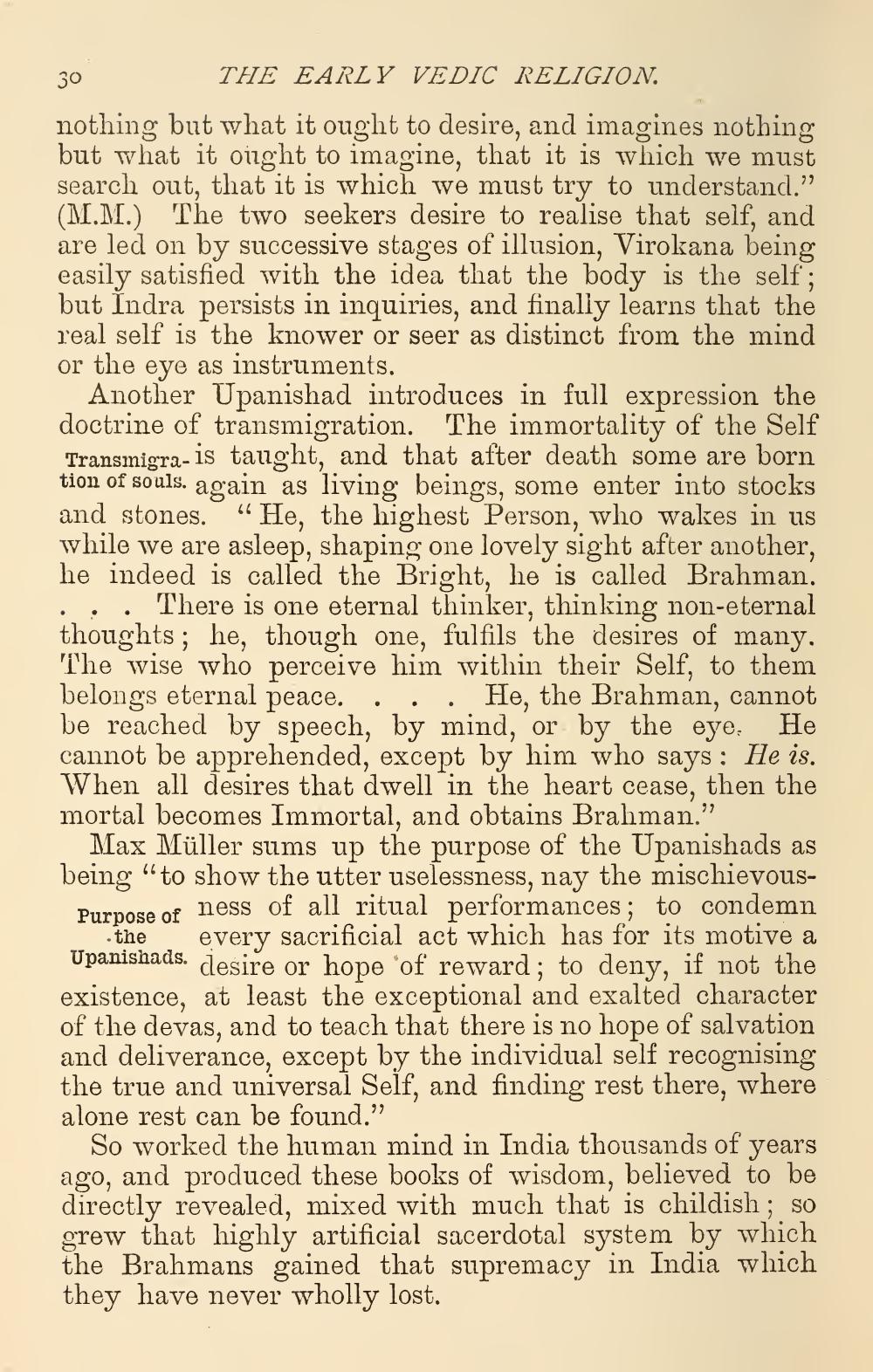________________
THE EARLY VEDIC RELIGION. nothing but what it ought to desire, and imagines nothing but what it ought to imagine, that it is which we must search out, that it is which we must try to understand.” (M.M.) The two seekers desire to realise that self, and are led on by successive stages of illusion, Virokana being easily satisfied with the idea that the body is the self; but Indra persists in inquiries, and finally learns that the real self is the knower or seer as distinct from the mind or the eye as instruments.
Another Upanishad introduces in full expression the doctrine of transmigration. The immortality of the Self Transmigra-is taught, and that after death some are born tion of souls. again as living beings, some enter into stocks and stones. "He, the highest Person, who wakes in us while we are asleep, shaping one lovely sight after another, he indeed is called the Bright, he is called Brahman. ... There is one eternal thinker, thinking non-eternal thoughts; he, though one, fulfils the desires of many. The wise who perceive him within their Self, to them belongs eternal peace. . . . He, the Brahman, cannot be reached by speech, by mind, or by the eye. He cannot be apprehended, except by him who says: He is. When all desires that dwell in the heart cease, then the mortal becomes Immortal, and obtains Brahman."
Max Müller sums up the purpose of the Upanishads as being "to show the utter uselessness, nay the mischievousPurpose of ness of all ritual performances; to condemn
the every sacrificial act which has for its motive a Upanishads. desire or hope of reward; to deny, if not the existence, at least the exceptional and exalted character of the devas, and to teach that there is no hope of salvation and deliverance, except by the individual self recognising the true and universal Self, and finding rest there, where alone rest can be found.”
So worked the human mind in India thousands of years ago, and produced these books of wisdom, believed to be directly revealed, mixed with much that is childish; so grew that highly artificial sacerdotal system by which the Brahmans gained that supremacy in India which they have never wholly lost.




